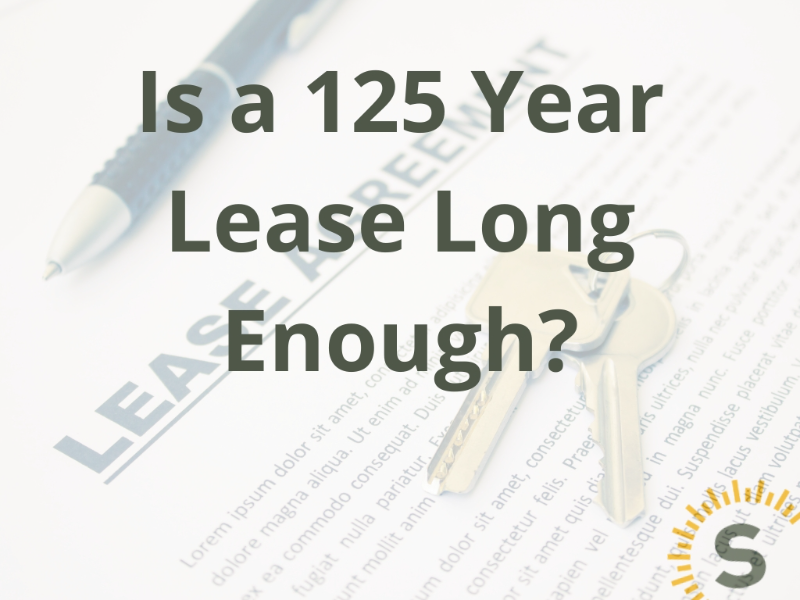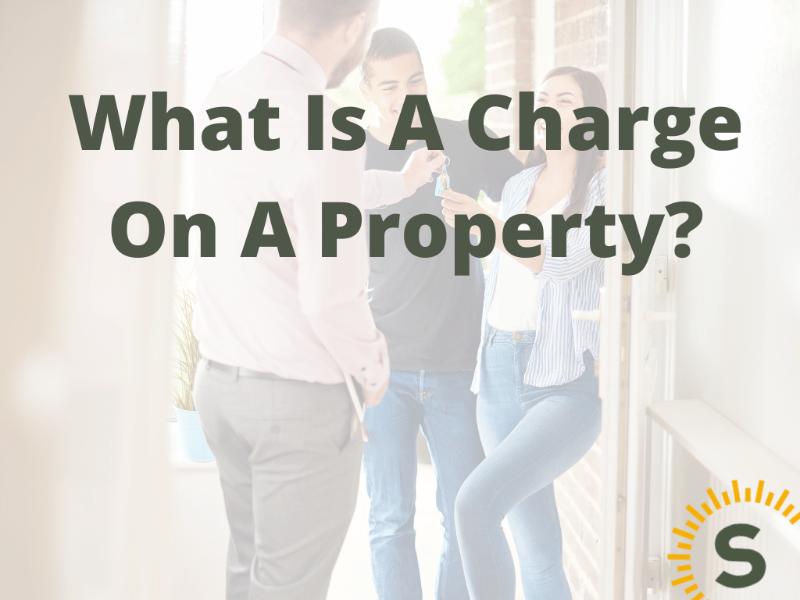
In the challenging landscape of the housing market, securing a mortgage can be a daunting task, especially for those with limited financial resources, poor credit history, or inconsistent income.
However, there is a solution that can help individuals overcome these obstacles and achieve their dream of homeownership - a guarantor mortgage.
In this insight, we will explore the ins and outs of guarantor mortgages, including how they work, who can be a guarantor, the risks involved, and the lenders that offer these types of mortgages.
A guarantor mortgage is a loan that involves a third party, known as the guarantor, who agrees to step in and cover the mortgage repayments if the borrower defaults.
This added security reduces the risk for lenders and allows borrowers to access larger loan amounts or better interest rates.
It is important to note that the guarantor does not have any ownership rights to the property. The property solely belongs to the borrower, and the guarantor's role is solely to provide financial support if needed.
Guarantor Mortgages can be used as an option for getting a mortgage with your parents.
They work by putting a charge on your parents property as security.
There are several advantages to consider when opting for a guarantor mortgage:
With a guarantor's support, borrowers may be able to access higher loan amounts, allowing them to afford properties that would otherwise be out of reach.
Lenders are more likely to offer better interest rates to borrowers with a guarantor, as the additional security reduces the risk associated with the loan.
Guarantor mortgages can be particularly beneficial for individuals with poor credit history, limited savings, low deposits, or inconsistent income.
The guarantor's involvement provides reassurance to lenders, increasing the chances of mortgage approval.
Lenders typically require guarantors to be close family members, such as parents or grandparents. This is because family members are more likely to have a vested interest in the borrower's financial well-being. In some cases, lenders may also accept other individuals, such as spouses or close friends, as long as they meet the lender's criteria.
To qualify as a guarantor, individuals must meet certain eligibility criteria, which may vary depending on the lender. Here are some common requirements:
Guarantors are usually required to be at least 21 years old. Some lenders may also impose an upper age limit for guarantors.
Guarantors should have a solid credit history, demonstrating their ability to manage financial obligations responsibly.
Lenders will assess the guarantor's financial situation, including their income, assets, and liabilities, to ensure they have the means to support the borrower if necessary.
Before becoming a guarantor, individuals must seek independent legal advice to fully understand their responsibilities and potential risks. This advice must be confirmed in writing to the lender.
It is essential for guarantors to carefully consider their decision and assess their own financial circumstances before committing to become a guarantor.
They should be comfortable with the potential risks involved, such as the possibility of having to cover the mortgage repayments in the event the borrower defaults.
Lenders offer various types of guarantor mortgages to cater to different borrower needs. Here are some common types:
With this type of guarantor mortgage, the guarantor deposits money into an account held by the lender.
The savings serve as collateral, providing additional security for the loan. If the borrower defaults on their repayments, the lender may use the savings to cover any shortfalls.
In this arrangement, the guarantor uses their property as security for the loan. If the borrower fails to make the repayments, the lender may repossess and sell the guarantor's property to recover any outstanding debt.
With a family offset mortgage, the guarantor deposits money into a savings account linked to the borrower's mortgage.
The amount in the savings account offsets the mortgage balance, reducing the interest charged on the loan. Although the savings won't earn interest, they can be accessed by the guarantor if needed.
A family link mortgage allows borrowers to access up to 90% of a property's value as a mortgage. The remaining 10% is secured against the guarantor's home, which they must own outright. The borrower and guarantor are jointly responsible for repaying the 10% within a specified timeframe.
It is essential to discuss the different types of guarantor mortgages with a mortgage broker or advisor to determine which option best suits your specific financial circumstances and goals.
When applying for a guarantor mortgage, borrowers have several options.
They can apply directly with lenders or seek the assistance of a mortgage broker who can provide expert guidance and access to a wider range of lenders.
Working with a mortgage broker has numerous advantages, including:
Mortgage brokers have access to multiple lenders, including those who specialise in guarantor mortgages.
This increases the chances of finding the most suitable mortgage option for your needs.
Mortgage brokers possess in-depth knowledge of the mortgage industry and can provide tailored advice based on your financial situation and goals.
They can help navigate the application process and ensure you meet the necessary requirements.
Applying for a mortgage involves extensive paperwork. A mortgage broker can help you with the documentation, ensuring everything is completed accurately and efficiently.
Mortgage brokers have a thorough understanding of different lenders' criteria.
They can assess your circumstances and match you with lenders who are more likely to approve your application, increasing your chances of securing a guarantor mortgage.
While guarantor mortgages offer several benefits, it is crucial to be aware of the risks involved. Here are some potential risks to consider:
Guarantors are legally bound to cover the mortgage repayments if the borrower defaults. This can place a significant financial burden on the guarantor, impacting their own financial stability.
If the borrower fails to make timely repayments, it can negatively affect both their and the guarantor's credit scores. This can make it challenging for both parties to secure future credit.
In some cases, if the borrower defaults and the guarantor's property was used as security, the lender may repossess and sell the guarantor's property to recover the outstanding debt.
Financial arrangements involving family or friends can sometimes strain relationships. It is crucial to have open and honest discussions about expectations, responsibilities, and potential risks before entering into a guarantor mortgage agreement.
Several lenders in the UK offer guarantor mortgages to borrowers. While this list is not exhaustive, it provides a starting point for borrowers seeking a guarantor mortgage:
It is important to note that each lender may have specific criteria and requirements for guarantor mortgages. Consulting with a mortgage broker can help identify the most suitable lenders for your individual circumstances.
if you're looking for alternatives that specifically exclude guarantor mortgages, here are three alternatives:
A joint mortgage involves two or more individuals applying for the mortgage together. Each person shares the responsibility for the mortgage, and their combined income and creditworthiness can make it easier to qualify for a larger loan or better terms.
In a joint proprietor, sole borrower arrangement, multiple individuals jointly own the property, but only one person is the borrower on the mortgage. This can be a suitable option for situations where one person's income and credit history are stronger.
Shared ownership programs, often offered by housing associations, allow buyers to purchase a percentage of a property and pay rent on the remaining share.
Over time, they can gradually increase their ownership share. This is an excellent option for those who can't afford full ownership at the moment.
A guarantor mortgage can be a valuable option for individuals facing obstacles in securing a mortgage on their own. By involving a trusted guarantor, borrowers can access higher loan amounts, better interest rates, and overcome financial challenges. However, it's crucial to understand the risks involved and carefully consider the potential impact on the guarantor's financial stability.
When considering a guarantor mortgage, seeking advice from a mortgage broker is highly recommended. They can provide expert guidance, access to a wider range of lenders, and help navigate the application process. With their assistance, borrowers can increase their chances of securing a suitable guarantor mortgage and achieve their homeownership goals.

Stuart is an expert in Property, Money, Banking & Finance, having worked in retail and investment banking for 10+ years before founding Sunny Avenue. Stuart has spent his career studying finance. He holds qualifications in financial studies, mortgage advice & practice, banking operations, dealing & financial markets, derivatives, securities & investments.
 No minimum
No minimum  Newcastle-under-Lyme, Staffordshire
Newcastle-under-Lyme, Staffordshire Free Consultations
Free Consultations
 No minimum
No minimum  Free Consultations
Free Consultations
 No minimum
No minimum  No obligation consultation
No obligation consultation
 No minimum
No minimum  No obligation consultation
No obligation consultation
 No minimum
No minimum  Free Consultations
Free Consultations
 No minimum
No minimum  No obligation consultation
No obligation consultation
 No minimum
No minimum  No obligation consultation
No obligation consultation
 No minimum
No minimum  Free Consultations
Free Consultations
 No minimum
No minimum  Coatbridge, Lanarkshire
Coatbridge, Lanarkshire Initial or Ongoing Consultation Fees
Initial or Ongoing Consultation Fees
 No minimum
No minimum  Initial or Ongoing Consultation Fees
Initial or Ongoing Consultation Fees
 £21,000 +
£21,000 +  Initial fee free consultation
Initial fee free consultation
 London, Greater London
London, Greater London No obligation consultation
No obligation consultation
 No minimum
No minimum  No obligation consultation
No obligation consultation
 No minimum
No minimum  Initial fee free consultation
Initial fee free consultation
 No minimum
No minimum  No obligation consultation
No obligation consultation
 No minimum
No minimum  No obligation consultation
No obligation consultation
 No minimum
No minimum  Initial fee free consultation
Initial fee free consultation
 No minimum
No minimum  Initial or Ongoing Consultation Fees
Initial or Ongoing Consultation Fees
 £51,000+
£51,000+  Free Consultations
Free Consultations
 No minimum
No minimum  No obligation consultation
No obligation consultation
 No minimum
No minimum  Initial fee free consultation
Initial fee free consultation
 £101,000+
£101,000+  Bishop's Stortford, Hertfordshire
Bishop's Stortford, Hertfordshire No obligation consultation
No obligation consultation
 No minimum
No minimum  Derry / Londonderry, County Derry / Londonderry
Derry / Londonderry, County Derry / Londonderry Free Consultations
Free Consultations
 No minimum
No minimum  Stockton-on-Tees, County Durham
Stockton-on-Tees, County Durham Free Consultations
Free Consultations
 No minimum
No minimum  Initial fee free consultation
Initial fee free consultation





Our website offers information about financial products such as investing, savings, equity release, mortgages, and insurance. None of the information on Sunny Avenue constitutes personal advice. Sunny Avenue does not offer any of these services directly and we only act as a directory service to connect you to the experts. If you require further information to proceed you will need to request advice, for example from the financial advisers listed. If you decide to invest, read the important investment notes provided first, decide how to proceed on your own basis, and remember that investments can go up and down in value, so you could get back less than you put in.
Think carefully before securing debts against your home. A mortgage is a loan secured on your home, which you could lose if you do not keep up your mortgage payments. Check that any mortgage will meet your needs if you want to move or sell your home or you want your family to inherit it. If you are in any doubt, seek independent advice.